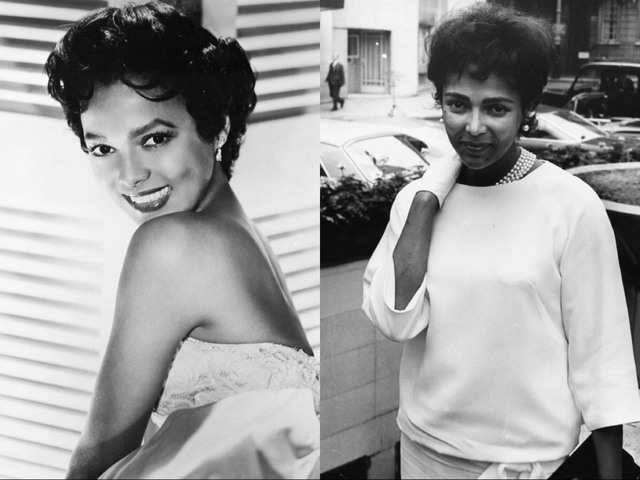Dorothy Dandridge was more than just a talented actress and singer; she was a pioneer who broke racial barriers in Hollywood. As the first African American woman to be nominated for an Academy Award for Best Actress, she paved the way for future generations. Despite her undeniable talent, she faced significant challenges in an industry that was not yet ready to embrace true equality.
Early Life and Entry into Show Business
Dorothy Jean Dandridge was born on November 9, 1922, in Cleveland, Ohio. Her mother, Ruby Dandridge, was an aspiring actress who left Dorothy’s father before she was born. Raised in a strict environment by her mother and Geneva Williams, Dorothy’s childhood was far from easy.
From a young age, Dorothy and her sister Vivian performed as “The Wonder Children,” singing in Black churches across the South. This early exposure to performing helped shape her career but also exposed her to the harsh realities of racial segregation.
In the 1930s, the family moved to Los Angeles, where Dorothy joined the Dandridge Sisters, a musical group that performed at renowned venues like Harlem’s Cotton Club. Despite their success, Dorothy continued to face racism in the entertainment industry.

Breakthrough as a Hollywood Star
Dorothy started her Hollywood career with small roles, including an appearance in *A Day at the Races* (1937). Her true breakthrough came in 1953 when she starred in *Bright Road*, playing a dedicated schoolteacher opposite Harry Belafonte.
Her next role in *Carmen Jones* (1954) cemented her status as a star. The film, a reimagining of Bizet’s opera, showcased her acting talent and led to an Academy Award nomination for Best Actress—the first for an African American woman. Though she did not win, her nomination was a historic moment for Black performers in Hollywood.

Challenges in a Segregated Hollywood
Despite her critical success, Dorothy found it difficult to secure meaningful roles. Hollywood’s systemic racism meant that she was often typecast or denied opportunities given to white actresses.
She refused the role of Tuptim in *The King and I* (1956) to avoid portraying an enslaved character, showing her commitment to dignified representation. However, this decision also limited her career options.
Films like *Island in the Sun* (1957) and *Tamango* (1958) explored interracial romance, a controversial subject at the time. Although they gained attention, they failed to fully showcase Dorothy’s immense talent.

Personal Life and Relationships
Dorothy’s personal life was filled with challenges. In 1942, she married Harold Nicholas, a dancer from the Nicholas Brothers duo. Their marriage was troubled, and they eventually divorced in 1951. Their daughter, Harolyn, was born with brain damage, which added financial and emotional strain.
In 1959, she married Jack Denison, but their relationship was abusive and financially disastrous. By the early 1960s, she was struggling to maintain financial stability.

Later Career and Struggles
As Hollywood’s interest in her declined, Dorothy took on fewer film roles. Her final major role was in *Porgy and Bess* (1959), where she starred alongside Sidney Poitier.
Facing financial ruin, she returned to performing in nightclubs. The stress of her declining career, coupled with personal setbacks, led her to heavy drinking and reliance on antidepressants.
In 1963, she was forced to place her daughter in a state institution due to financial difficulties, a heartbreaking decision that haunted her.

Tragic End and Lasting Legacy
On September 8, 1965, Dorothy Dandridge was found dead in her apartment at the age of 42. Initially believed to be caused by an embolism, later reports suggested an overdose of antidepressants. At the time of her death, she had only $2 in her bank account.
Decades later, interest in her life was revived through biographies and retrospectives. In 2000, Halle Berry portrayed Dorothy in *Introducing Dorothy Dandridge*, winning a Golden Globe and an Emmy.
Conclusion
Dorothy Dandridge’s journey was one of both triumph and tragedy. As a pioneer, she paved the way for Black actors in Hollywood, challenging stereotypes and breaking barriers. Though her life was cut short, her impact on the entertainment industry remains undeniable. She will always be remembered as a trailblazer who changed the face of Hollywood.


